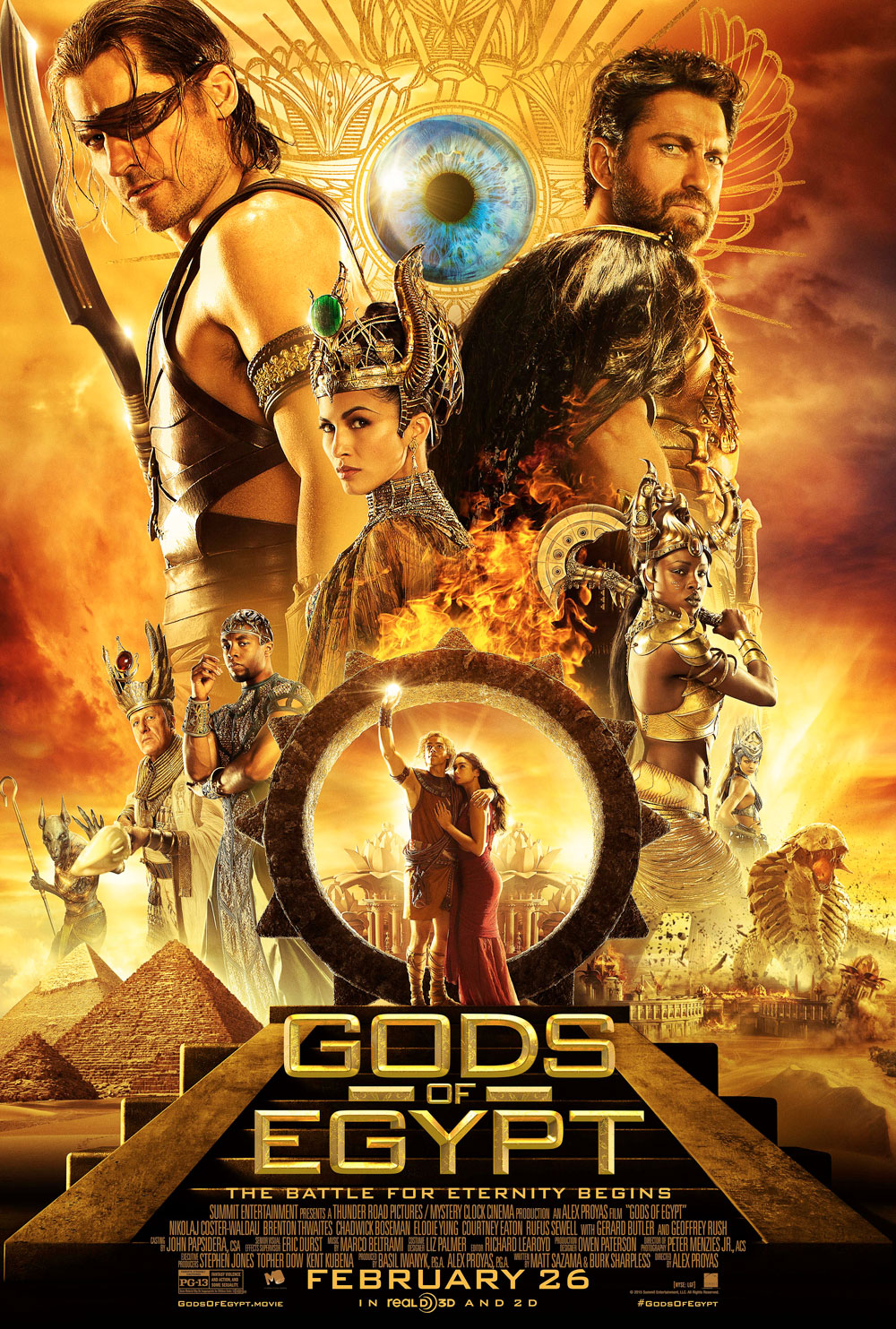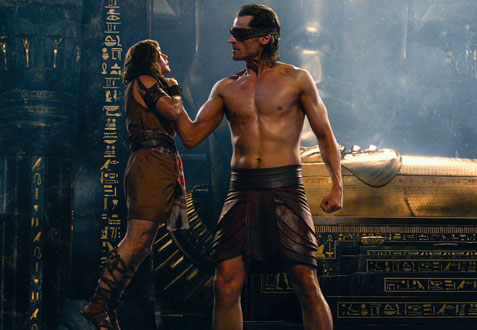
You have to respect any studio daring enough to give director Alex Proyas – who hasn’t made a movie in over seven years – $140 million dollars to produce an adventure/fantasy film that isn’t based on a preexisting property. Unfortunately, that respect means very little when the money is wasted on a movie as hopelessly dumb as “Gods of Egypt,” though you could hardly say that the warning signs weren’t there, especially with a screenplay by the same hacks responsible for recent flops like “Dracula Untold” and “The Last Witch Hunter.” Credit to Proyas for attempting something this ambitious, but it doesn’t make the effects-heavy fantasy flick any less of a turkey.
The film takes place in ancient Egypt, where gods and mortals coexist under the leadership of King Osiris (Bryan Brown), the favored offspring of the sun god Ra (a strangely miscast Geoffrey Rush). But when it comes time to crown his son Horus (Nikolaj Coster-Waldau) as Egypt’s newest ruler, his jealous brother Set (Gerard Butler) stages a royal coup, killing Osiris and defeating Horus in battle. Set ultimately shows mercy to Horus by letting him live, but not before plucking out his magic eyes, which are the source of his god-like abilities. As Egypt is thrust into a slave-driven dictatorship, a young thief named Bek (Brenton Thwaites) decides to take action by stealing back one of Horus’ eyes and striking a deal with the self-exiled god. In exchange for its return, Bek demands that Horus resurrects his recently slain love (Courtney Eaton) before she reaches the afterlife, a seemingly impossible feat that Horus nevertheless agrees to in order to exact revenge on his murderous uncle.
What follows is basically “Clash of the Titans” in Egypt, albeit with some pretty gonzo moments more befitting of pulp sci-fi like “Flash Gordon.” Gerard Butler rides a giant flying beetle, gods transform into metallic armored beasts, and Geoffrey Rush floats around on a space-yacht while fighting off a massive cosmic worm that wants to devour the planet. Why? It’s never really explained, or at least writers Matt Sazama and Burk Sharpless don’t care enough to do a better job of it. The plot is so inconsequential, treated purely as a means of getting the characters from point A to point B, that it just as well could have been adapted from an old video game. “Gods of Egypt” definitely feels like one at times, because the entire movie looks like it was shot in front of a green screen.
The scope of the film is impressive, covering a wide spectrum of Egyptian mythology that includes the mortal world, the underworld and the cosmos, but Proyas tries to cram too much into one movie, afraid of leaving anything on the table in the event that he doesn’t get the chance to play in this sandbox again. Most of it is incredibly silly, although the idea that deities are twice the size of humans creates an interesting dynamic between Horus and Bek, even if it results in a weird, Peter Jackson-like hobbit effect that never quite looks right. The same could be said for many of the film’s visual effects, which range from unpolished to downright cheesy. They’re not all terrible, of course, but “Gods of Egypt” is so reliant on CGI that it only makes the shoddy effects stand out more.
The movie’s problems don’t end there, either. As if the mostly white-washed cast wasn’t shameful enough (did no one learn anything from the whole “Exodus: Gods and Kings” debacle?), Butler is covered in so much bronzer that he’s practically in brownface, and he can’t even be bothered to conceal his Scottish accent. The rest of the cast fares a little better, but the film is such a poorly written mess that even the world’s finest actors couldn’t make this lackluster material exciting. “Gods of Egypt” is really that bad, rivaling “Jupiter Ascending” as the most embarrassing wannabe blockbuster in recent years. Though it’s great to see studios give unique voices like Proyas and the Wachowskis the support to develop original ideas, when the movies continue to fail this spectacularly, it’s no wonder they’ve become increasingly more rare.
Related Posts
Posted in: Entertainment, Movie Reviews, Movies
















